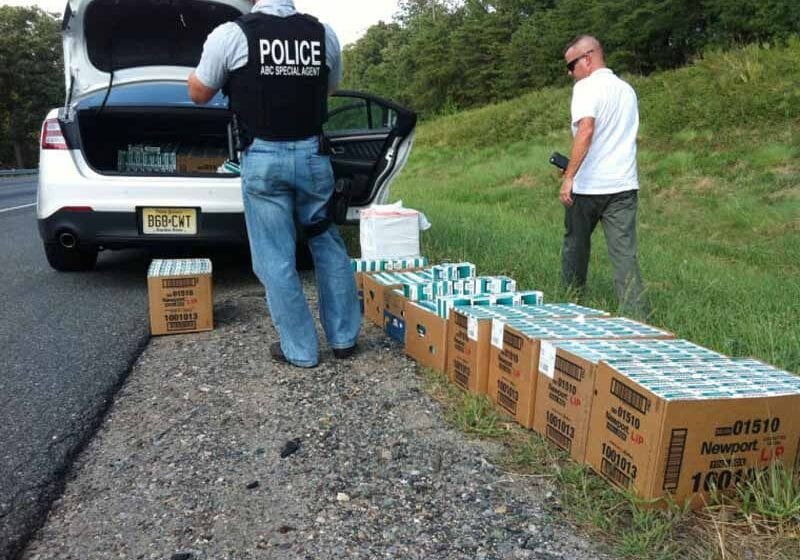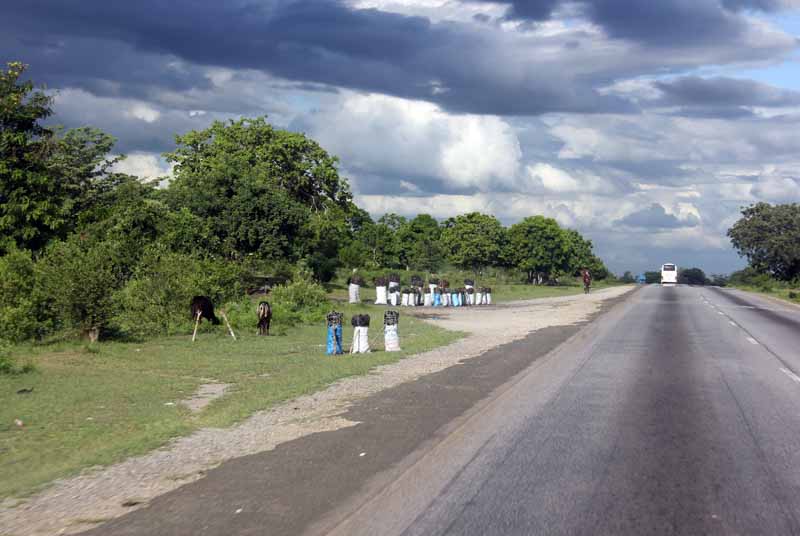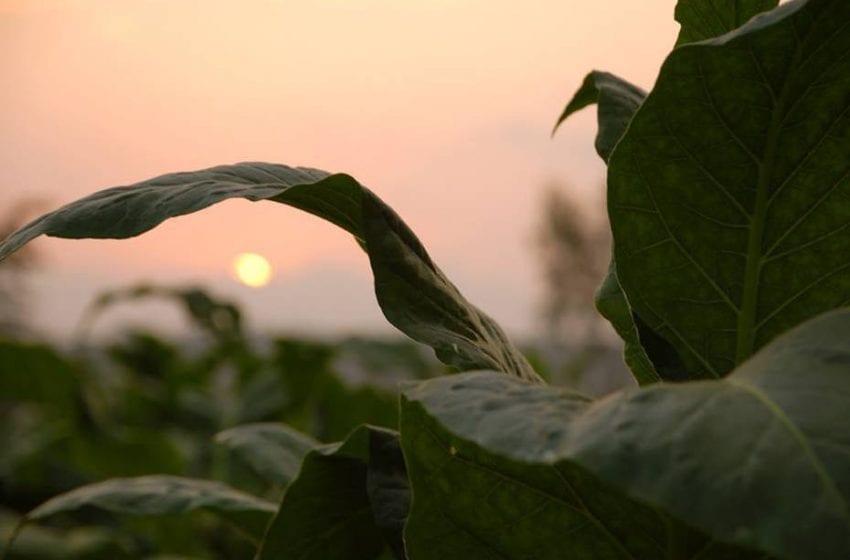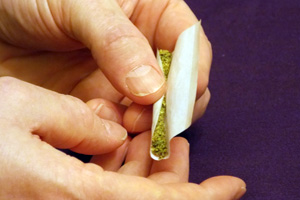A ‘significant percentage of Australian smokers’ are consuming illicit cigarettes, according to a Xinhua News Agency story based on a report published yesterday.
The KPMG study showed that while tobacco consumption fell by 6.1 percent between 2016 and 2017, the share of illicit tobacco rose to 15 percent – to 1,248 tons.
In 2009, the story said, illicit tobacco accounted for nine percent of overall consumption.
The consumption of illicit cigarettes was said to be ‘costing’ the federal government up to A$2 billion (US$1.49 billion) in ‘lost’ tax revenue.
But Australia’s excise on cigarettes is expected to raise A$15.6 billion by 2021, up from A$11.2 billion in 2017-18 as excise increases come into effect.
The excise on tobacco was raised by 25 percent in 2010 with eight further 12.5 percent increases legislated to take place between 2013 and 2020. It is currently equivalent to 75 percent of the price of a pack of cigarettes.
Illicit cigarettes are about 40 percent cheaper than are licit cigarettes, while loose-leaf tobacco is 70-80 percent cheaper.
Tag: Australia

Illegal trade rising

Tasmania is smoking
Tobacco use in Tasmania is higher than in any other Australian state or territory, according to a story by Erin Cooper for the Australian Broadcasting Corporation citing results from the National Wastewater Drug Monitoring Program.
The program appears to measure nicotine because the story said also that ‘… Tasmania still leads the nation in smoking, following nicotine usage rates that exceeded the national average in the previous two’.
The program measures also illicit drugs but, overall, nicotine and alcohol were said to have remained the substances – of those measured – that were consumed in the highest quantities.
The annual survey uses wastewater samples from water treatment plants across Australia to measure national drug consumption.
On this occasion, sampling was conducted in October and December 2017 at 45 plants, which represents about 50 percent of the population.
Nationally, ice (crystal methamphetamine) remained the most consumed illicit drug and the average national consumption has increased.
The Minister for Law Enforcement and Cyber Security Angus Taylor was quoted as saying that ice consumption was a stand-out problem.
“This continues to be a significant problem, because it was minimal only a few short years ago.”
Committee split on e-cigs
The chairperson of a committee inquiring into electronic-cigarette use in Australia has prepared a dissenting report recommending permitting nicotine use in such products, according to a story by Megan Haggan for the Australian Journal of Pharmacy.
But in its Report on the Inquiry into the Use and Marketing of Electronic Cigarettes and Personal Vaporisers in Australia, Parliament’s Health, Aged Care and Sport Committee made five recommendations.- A review of the evidence relating to the health impacts of e-cigarettes, to be updated every two years. Issues covered by the review would include: whether e-cigarettes can help people to quit smoking, the health effects of e-cigarette liquid (e-liquid) and long-term use of e-cigarettes, whether e-cigarettes could lead to more young people smoking and/or using nicotine, and the relative health impacts of e-cigarettes when compared to tobacco products.
- An international meeting of health experts to discuss policy and legislative approaches to e-cigarettes.
- A national approach to the regulation of non-nicotine e-cigarettes.
- The Therapeutic Goods Administration’s continued role in classifying nicotine and assessing e-cigarettes.
- Greater regulation of flavourings and colourings used in e-liquid.
In their dissenting report, the Committee chairman and federal member for North Sydney, Trent Zimmerman, and Tim Wilson recommended that:
- Nicotine used for e-cigarettes be made exempt from Schedule 7 of the Poisons Standard.
- Legislation be passed to permit the sale and use of e-cigarettes containing nicotine with a regulatory framework for their sale and consumption based on standards found in the European Union and the United Kingdom.
- A notification and assessment process for colour and flavourings used in e-cigarettes.
Meanwhile, Dr. Andrew Laming was said to have provided a dissenting report recommending that vaping be legalised.
The Public Health Association of Australia welcomed the majority report, saying it and its approach closely align with the views of leading public health experts in their recommendations for an evidence-based and precautionary approach to e-cigarettes.
The PHAA says it is also pleased to see the report acknowledge the three pillars of Australia’s harm minimisation drug policy: prevention, protection and promotion; as well as its emphasis on ensuring that e-cigarette regulation is consistent with tobacco regulation.
Haggan’s story is at: https://ajp.com.au/news/minority-report-committee-divided-e-cigs/.
Road to recycling
Australian researchers may have come up with a way of utilising discarded cigarette butts, according to a story by Ben Renner for studyfinds. org.
Researchers at RMIT (Royal Melbourne Institute of Technology) university have tested a mixture of asphalt and discarded cigarette butts, and the results so far are said to have been encouraging.
“I have been trying for many years to find sustainable and practical methods for solving the problem of cigarette butt pollution,” Dr. Abbas Mohajerani, the leader of the study and senior lecturer at RMIT, said in a release.
Mohajerani earned worldwide praise in 2016 after discovering a way to use cigarette butts in the production of bricks.
The researchers found that not only does the asphalt pass heavy traffic tests, it also reduces thermal conductivity.
The results of Mohajerani’s study were published in the journal Construction and Building Materials.
The studyfinds.org story is at: https://www.studyfinds.org/cigarette-butts-recycled-ground-asphalt/.
Illegal tobacco growing
Police have uncovered five ha of illicit tobacco being grown in the Australian state of Victoria, according to a story in the Ballarat Courier.
The tobacco was said to have been found at Dunnstown, which is close-to and east of Ballarat.
Police officers said on Monday that an investigation into the illegal tobacco trade had led to the arrest of two men and the seizure of guns, ammunition and tobacco in Dunnstown.
Ballarat detectives were said to have joined forces with the Australian Taxation Office before executing a number of search warrants on Thursday.
The search was said to have uncovered five ha of tobacco plants, 4.2 tonnes of tobacco leaves, equipment used to process tobacco, and three unregistered guns and ammunition.
A 66-year-old man and 61-year-old man, both from Dunnstown, were arrested at the scene.
They have been assisting police with their inquiries but no charges had been laid as of Monday afternoon.
Agreement "quite scary"
Australian taxpayers are being warned they are at risk of picking up the bill if Australia is sued by multinational corporations under a new international trade agreement to be signed this week, according to a story by Anna Patty for the Sydney Morning Herald.
But for once, tobacco multinationals are in the clear.
Ministers of the original 12 Trans-Pacific Partnership (TPP) countries – Australia, Brunei Darussalam, Canada, Chile, Japan, Malaysia, Mexico, New Zealand, Peru, Singapore, the US and Vietnam concluded their negotiations in 2015; but, last year, US President Donald Trump pulled his country out of the agreement, forcing the other countries to change the treaty appropriately. The revised treaty was finalized in January.
The Australian Council of Trade Unions (ACTU) said that in signing the TPP agreement, the Australian government was choosing to give up Australia’s sovereignty by allowing the government to be sued by foreign corporations when they believed a change in Australian laws were affecting their profits.
The TPP is due to be signed in Chile on March 8.
The ACTU said that the agreement opened the way for taxpayers to pick up the bill if multinational corporations disagreed with Australia’s public policies.
Under the agreement, the government could exclude future tobacco control laws, but it could be vulnerable to being sued for other legislative changes.
An Australian government spokeswoman said Australia and New Zealand have agreed not to make the Investor-State Dispute Settlement (ISDS) mechanism available to investors from their respective TPP economies. However, Australia would still be subject to ISDS actions from other TPP partners.
Australian Trade Minister Steven Ciobo said the ACTU was “mischaracterising the TPP-11’s important outcomes for Australia’s services suppliers”.
He said ISDS provisions in the TPP protected Australian companies in economies that didn’t have the same transparency and predictability as Australia.
“The Coalition ensured the ISDS provisions include modern safeguards that ensures the government can regulate in the national interest,” he said.
But Stuart Rosewarne from the University of Sydney’s department of political economy described the ISDS provision in the TPP as “quite scary” because it effectively allowed a foreign-owned company to challenge Australian laws, including enhanced labour laws that were considered to impose additional or onerous obligations on a company’s employment practices.
Fair go mate!
The Lower House of the Australian parliament on Wednesday passed and sent to the Senate a bill that would introduce a jail term of up to five years for possessing, buying or selling illicit tobacco products, according to an Aap Newsfeed story relayed by the TMA.
Those who manufacture such products would be liable to a jail term of up to 10 years.
Liberal MP Craig Kelly said that whenever the government increased taxes, making cigarettes more expensive, black market activity increased.
It was necessary to respond to such increased activity, he added, by making the appropriate resources available to law enforcement agencies engaged in tackling the black market.
And it was necessary to ensure that penalties for illegal activities were appropriate.
Meanwhile, the Labor MP Shayne Neumann said that since the Australian Border Force’s tobacco strike team was established in October 2015, it had seized ‘104 MT of smuggled tobacco and 233 million cigarettes’.
Neumann said illicit tobacco trade “undermines the Australian government’s strategies in terms of prevention and control of tobacco products”.
E-cigs work without nicotine
The Cancer Council Australia (CCA) has urged smokers to be cautious about overseas research claiming that electronic cigarettes could help them kick their habit, according to a story by Annie Lewis for the Wagga-based Daily Advertiser.
The CCA’s director of advocacy Paul Grogan said that in Australia the jury was very much still out on the health effects of vaping.
Grogan said that while he welcomed international research, such as a recent study by Public Health England, Australian researchers were looking at the “whole picture” before making a determination.
“There is convincing evidence, including a meta-analysis in a respected American journal, showing a clear association between e-cigarette initiation and long-term smoking,” he said.
Grogan said too that Australia needed to keep in mind how well it had done in reducing rates of smoking, and how the biggest investor in the e-cigarette sector was the tobacco industry.
He said that the position of the CCA was very open to evidence-based research, but the emphasis was placed on getting all the facts.
Meanwhile, smokers seem to be taking a different view. The Wagga business, Vaped, was said to have almost sold out of stock in its first week.
“The success rate is big; it definitely works for all our customers,” Vaped owner, Lance Carr, was quoted as saying.
“We do get a lot of repeat customers that come back saying they haven’t smoked because the e-cigarette is working.”
Carr said that while some users bought their own nicotine, that wasn’t the case for the majority.
“We don’t encourage the use of nicotine because it’s illegal to sell it,” he said.
“For a heavy smoker nicotine is recommended but I was surprised when we first opened; I thought it would have been that the majority needed nicotine in their liquids but it’s the opposite.”
Loose tobacco in fine shape
The popularity of smoking tobacco has been growing in Australia since 2014 and, by last year, had taken the per capita consumption of licit products to 90.8g, according to the data and analytics company GlobalData.
A GlobalData press note did not say what the per capita consumption had been prior to 2017.
Overall, the market for smoking tobacco, which is hugely dominated by fine-cut, includes too a considerable amount of “chop-chop” or illicit loose tobacco.
GlobalData says in its report, Smoking Tobacco in Australia, 2018, that the growth in smoking tobacco sales had come about partly because tax hikes on manufactured cigarettes had rendered fine-cut competitively priced.
Meanwhile, the press note said that the market share of manufactured cigarettes within the total licit tobacco sector had declined from 92.4 percent in 2007 to 86.9 percent in 2017, while, during the same period, the market share of fine-cut had gone from 6.8 percent to 12.6 percent.
And it said that the increases in smoking tobacco’s volumes and market share had been driven by strong growth in sales of fine cut, which accounted for 99.6 percent of the smoking tobacco market; while pipe tobacco sales had continued their steady decline.
Volume sales of smoking tobacco are said to have increased by 29.5 percent between 2007 and 2017, but the prospects for the fine-cut market are said to be mixed. In the short term, GlobalData said, volumes would continue to expand, but the long-term prospects were more pessimistic as a result of ever-tightening regulatory restrictions.
‘Australia is a highly regulated market and the government has been using tax policies to curb tobacco consumption,’ GlobalData said in a press note. ‘Smoking appears to be in decline with the latest data placing adult smoking at only 14.9 percent, compared to almost 30 percent in 1990.’
Ranjan Singh, tobacco markets analyst at GlobalData was quoted as saying that while it seemed that the country’s smoking population had stabilized, current strategies aimed at making smoking more expensive and more restricted could can be expected to reduce smoking further.
Favoring combustibles
Western Australia’s state government is moving to introduce laws that could dump vaping into the same regulatory framework as the one that restricts smoking, according to a story by Cathy O’Leary for The West Australian.
Laws governing e-cigarettes in Australia are inconsistent. Western Australia (WA) effectively bans the sale of non-nicotine products by making it illegal to supply anything that resembles a tobacco product.
But WA is one of the few states not to ban people using them in non-smoking areas.
A parliamentary committee report chaired by Labor MLA Janine Freeman last year conceded the state’s laws were incomplete and loosely enforced.
“Anecdotal evidence suggests that many West Australians are unaware that nicotine e-cigarettes are illegal in Australia, and that selling a device that resembles a tobacco product is illegal in WA,” she wrote.
“For the time being at least, we have to work around a nonsensical regulation that allows the sale of nicotine for indisputably harmful tobacco products but not for a product which is widely regarded as less harmful.”
WA Health Minister Roger Cook, who supports a ban on e-cigarettes until their safety and effectiveness have been proved, said a review of WA’s tobacco laws would look at e-cigarettes.
“Towards the end of 2018, the Department of Health will conduct a further review of tobacco laws and I expect issues around all e-cigarettes to be front and centre,” he said.










